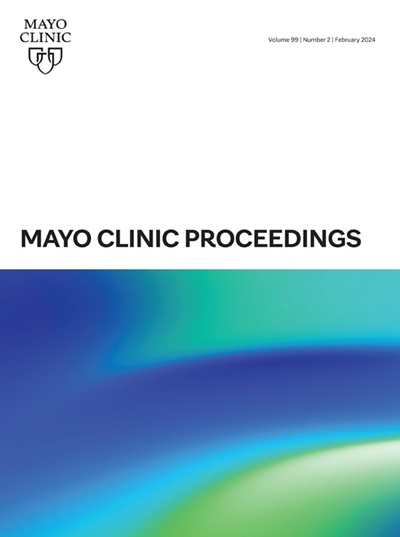心脏淀粉样变性的心脏移植:梅奥诊所共识声明。
IF 6.7
2区 医学
Q1 MEDICINE, GENERAL & INTERNAL
引用次数: 0
摘要
心脏淀粉样变性(CA)是一种继发于心肌淀粉样纤维沉积的浸润性心肌病。最常浸润心脏导致心脏淀粉样变性的两种前体蛋白是免疫球蛋白轻链(AL)和转甲状腺素(ATTR)。无论淀粉样变性的类型如何,心脏受累预示着较差的预后,那些有晚期心力衰竭症状的患者应该转介给心力衰竭专家进行进一步的评估和治疗。鉴于CA缺乏正式的心脏移植指南,我们建议在现有最佳证据和专家意见的背景下进行移植前评估和移植后管理。本文章由计算机程序翻译,如有差异,请以英文原文为准。
Heart Transplantation for Cardiac Amyloidosis: Mayo Clinic Consensus Statement
Cardiac amyloidosis (CA) is an infiltrative cardiomyopathy secondary to amyloid fibril deposition in the myocardium. The two precursor proteins that most frequently infiltrate the heart resulting in cardiac amyloidosis are immunoglobulin light chains (AL) and transthyretin (ATTR). Regardless of the type of amyloidosis, cardiac involvement portends a worse prognosis, and those patients with symptoms of advanced heart failure should be referred to a heart failure specialist for further evaluation and management. Given the lack of formalized guidelines for heart transplantation in CA, we propose recommendations for the pretransplant evaluation and posttransplant management within the context of the best current evidence in addition to expert opinion.
求助全文
通过发布文献求助,成功后即可免费获取论文全文。
去求助
来源期刊

Mayo Clinic proceedings
医学-医学:内科
CiteScore
16.80
自引率
1.10%
发文量
383
审稿时长
37 days
期刊介绍:
Mayo Clinic Proceedings is a premier peer-reviewed clinical journal in general medicine. Sponsored by Mayo Clinic, it is one of the most widely read and highly cited scientific publications for physicians. Since 1926, Mayo Clinic Proceedings has continuously published articles that focus on clinical medicine and support the professional and educational needs of its readers. The journal welcomes submissions from authors worldwide and includes Nobel-prize-winning research in its content. With an Impact Factor of 8.9, Mayo Clinic Proceedings is ranked #20 out of 167 journals in the Medicine, General and Internal category, placing it in the top 12% of these journals. It invites manuscripts on clinical and laboratory medicine, health care policy and economics, medical education and ethics, and related topics.
 求助内容:
求助内容: 应助结果提醒方式:
应助结果提醒方式:


